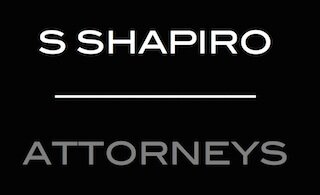Best Hiring & Firing Lawyers in Johannesburg
Share your needs with us, get contacted by law firms.
Free. Takes 2 min.
List of the best lawyers in Johannesburg, South Africa
About Hiring & Firing Law in Johannesburg, South Africa
Hiring and firing regulations in Johannesburg, South Africa, are primarily governed by the country's national labor laws. These laws aim to create a fair and balanced work environment, ensuring that both employers and employees are protected throughout the employment lifecycle. Johannesburg, as a major economic hub, adheres to the national legal framework established by the Labour Relations Act, the Basic Conditions of Employment Act, and various other regulations that guide how businesses can manage their workforce from hiring to termination. It is crucial for employers and employees in Johannesburg to understand these laws to ensure compliance and an equitable workplace.
Why You May Need a Lawyer
There are numerous situations where you might require legal assistance regarding hiring and firing in Johannesburg. For employers, navigating the complexities of employment contracts, understanding fair dismissal processes, or dealing with disputes can often require legal expertise. Employees might need legal advice if they feel they have been unfairly dismissed, face discrimination, or if their employment contract terms are unclear or unfavorable. A lawyer can help mediate disputes, provide guidance on compliance with employment legislation, and represent either party in the Commission for Conciliation, Mediation, and Arbitration (CCMA) or labor courts if necessary.
Local Laws Overview
South African employment law is detailed and encompasses several key acts relevant to hiring and firing:
Labour Relations Act (LRA): This act governs the relationship between employers and employees, outlining processes for fair dismissals and protections against unfair labor practices.
Basic Conditions of Employment Act (BCEA): This act sets minimum employment conditions, such as working hours, leave regulations, and notice periods for termination.
Employment Equity Act (EEA): This legislation seeks to promote equal opportunities and fair treatment in the workplace, addressing hiring discrimination.
In Johannesburg, as elsewhere in South Africa, adherence to these laws ensures that employment practices are fair, transparent, and non-discriminatory.
Frequently Asked Questions
What constitutes unfair dismissal in Johannesburg?
An unfair dismissal occurs when an employee is fired without a valid reason or not following the correct procedures as prescribed by the LRA, such as not conducting a proper disciplinary hearing.
Are trial periods or probation allowed when hiring?
Yes, employers can have a probation period, but it should be agreed upon at the start of employment, clearly stating its duration and purposes for evaluation.
What is the minimum notice period for termination?
Notice periods are set by the BCEA: one week if employed for six months or less, two weeks if employed for more than six months but less than a year, and four weeks if employed for more than a year.
Can an employee be dismissed without notice?
Summary dismissal (dismissal without notice) is permitted in cases of gross misconduct or serious offenses, after following proper procedures.
What protections exist against discrimination in hiring?
The EEA prohibits discrimination based on race, gender, sex, pregnancy, marital status, family responsibility, ethnic or social origin, color, sexual orientation, age, disability, religion, HIV status, conscience, belief, political opinion, culture, language, and birth.
How is redundancy handled legally?
Redundancy, or retrenchment, must be conducted following LRA guidelines, which require meaningful consultation with the affected employees and consideration of alternatives.
Are layoffs different from dismissals?
Yes, layoffs can be temporary and are often due to operational requirements, whereas dismissals are permanent terminations of employment.
What sectors have specific hiring and firing regulations?
Certain sectors, like mining, retail, or domestic work, have specific regulations or sectoral determinations that may affect hiring and firing practices.
Is it necessary to put employment contracts in writing?
While not strictly necessary, it is highly advisable to have written employment contracts to clearly outline terms and reduce legal risks.
Where can I seek help if I've been unfairly dismissed?
If you believe you’ve been unfairly dismissed, you can approach the CCMA for dispute resolution and possible intervention.
Additional Resources
To further assist you in understanding and navigating hiring and firing in Johannesburg, consider the following resources:
Commission for Conciliation, Mediation, and Arbitration (CCMA): A dispute resolution body that deals with labor disputes.
Department of Employment and Labour: Provides resources and updates on employment regulations and rights.
Legal Aid South Africa: Offers legal assistance for those who qualify for aid.
Next Steps
If you're facing a hiring or firing-related legal issue in Johannesburg, consider taking these steps:
1. Gather all relevant documents: employment contracts, dismissal letters, emails, and any written communication concerning your employment can be crucial.
2. Seek initial advice: Consider consulting a labor law specialist to understand your rights and options.
3. Contact the CCMA: For disputes, they can guide conflict resolution processes.
4. Consider mediation: This can be an effective way to resolve disputes without resorting to lengthy legal proceedings.
5. File a legal complaint: If necessary, a lawyer can assist you in filing a complaint with the labor court.
Lawzana helps you find the best lawyers and law firms in Johannesburg through a curated and pre-screened list of qualified legal professionals. Our platform offers rankings and detailed profiles of attorneys and law firms, allowing you to compare based on practice areas, including Hiring & Firing, experience, and client feedback.
Each profile includes a description of the firm's areas of practice, client reviews, team members and partners, year of establishment, spoken languages, office locations, contact information, social media presence, and any published articles or resources. Most firms on our platform speak English and are experienced in both local and international legal matters.
Get a quote from top-rated law firms in Johannesburg, South Africa — quickly, securely, and without unnecessary hassle.
Disclaimer:
The information provided on this page is for general informational purposes only and does not constitute legal advice. While we strive to ensure the accuracy and relevance of the content, legal information may change over time, and interpretations of the law can vary. You should always consult with a qualified legal professional for advice specific to your situation.
We disclaim all liability for actions taken or not taken based on the content of this page. If you believe any information is incorrect or outdated, please contact us, and we will review and update it where appropriate.
















